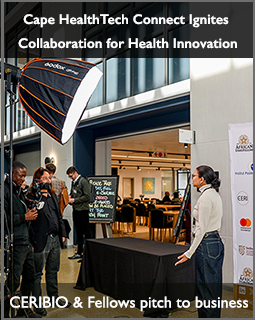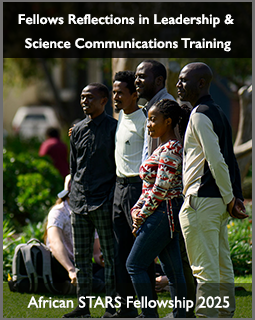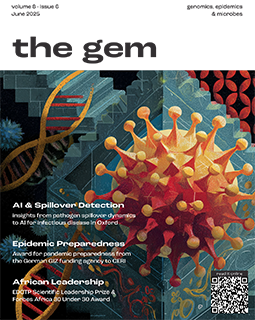Brazilian PhD Student, Débora de La-Roque, reflects on her time in South Africa
Six months can make a world of difference, especially when spent in a hub of scientific excellence. This was certainly the case for Débora Glenda Lima de LaRoque, a PhD student from the University of São Paulo (USP) in Brazil, who came to Stellenbosch University’s Centre for Epidemic Response and Innovation (CERI) to enhance her research in dengue virus phylogenetics and phylodynamics.

'My PhD project is about dengue phylogenetics and phylodynamics, and CERI has some of the biggest experts in the area,' Débora explains. 'I wanted to learn how to present my findings in a way that is relevant to my field.' Her work focuses on dengue virus evolution in a small endemic area, driven by her passion for studying viruses and the local impact of dengue in her home city
As part of the fellowship, the Sigal Lab hosted Debora at the Africa Health Research Institute (AHRI). During her stay, Débora trained in virus isolation and neutralization assays to advance her research on dengue virus phylogenetics and phylodynamics. It’s always exciting to be part of these collaborations, where the exchange of knowledge and skills strengthens our ability to tackle emerging viral infections.
Reflecting on her fellowship, Débora says, 'I sure did achieve my goal! The way the CERI team works together really inspired me.' She spent six months learning advanced bioinformatic tools and exploring new ways to analyze data, all while benefiting from a highly collaborative environment. Her fellowship, funded by the Fundação de Amparo à Pesquisa do Estado de São Paulo (FAPESP), not only expanded her scientific knowledge but also allowed her to experience the warmth of the Stellenbosch community. 'CERI people are really open and welcoming,' she recalls. 'I made a lot of friends during my stay.'
During her fellowship time at CERI, Débora earned 3rd place for her poster presentation at the 2nd South African Workshop on SARS-CoV-2 & Emerging & Re-emerging Infections. Her poster, titled Exploring Dengue Serotype Replacement in a Brazilian Endemic Area, reflected the project she developed at both CERI and the Africa Health Research Institute (AHRI). 'I’m proud of this achievement, as it relates directly to the work I’ve been developing here,' she shared.
For anyone considering a short-term fellowship at CERI, Débora’s advice is simple: fully engage. 'They have so much to teach, and the most valuable lessons come from daily interactions and meetings,' she says. As she heads back to Brazil, Débora is excited to apply her newfound skills and carry the fond memories from her time in South Africa with her.
This news piece was published in the gem, Oct/Nov 2024

Click on the image above to read the gem, genomics, epidemics & microbes or scan the qrcode.
News date: 2024-10-31
Links:
https://issuu.com/the.gem/docs/3rdedition_the_gem_newsletter_a4_v2?fr=xKAE9_zU1NQ










